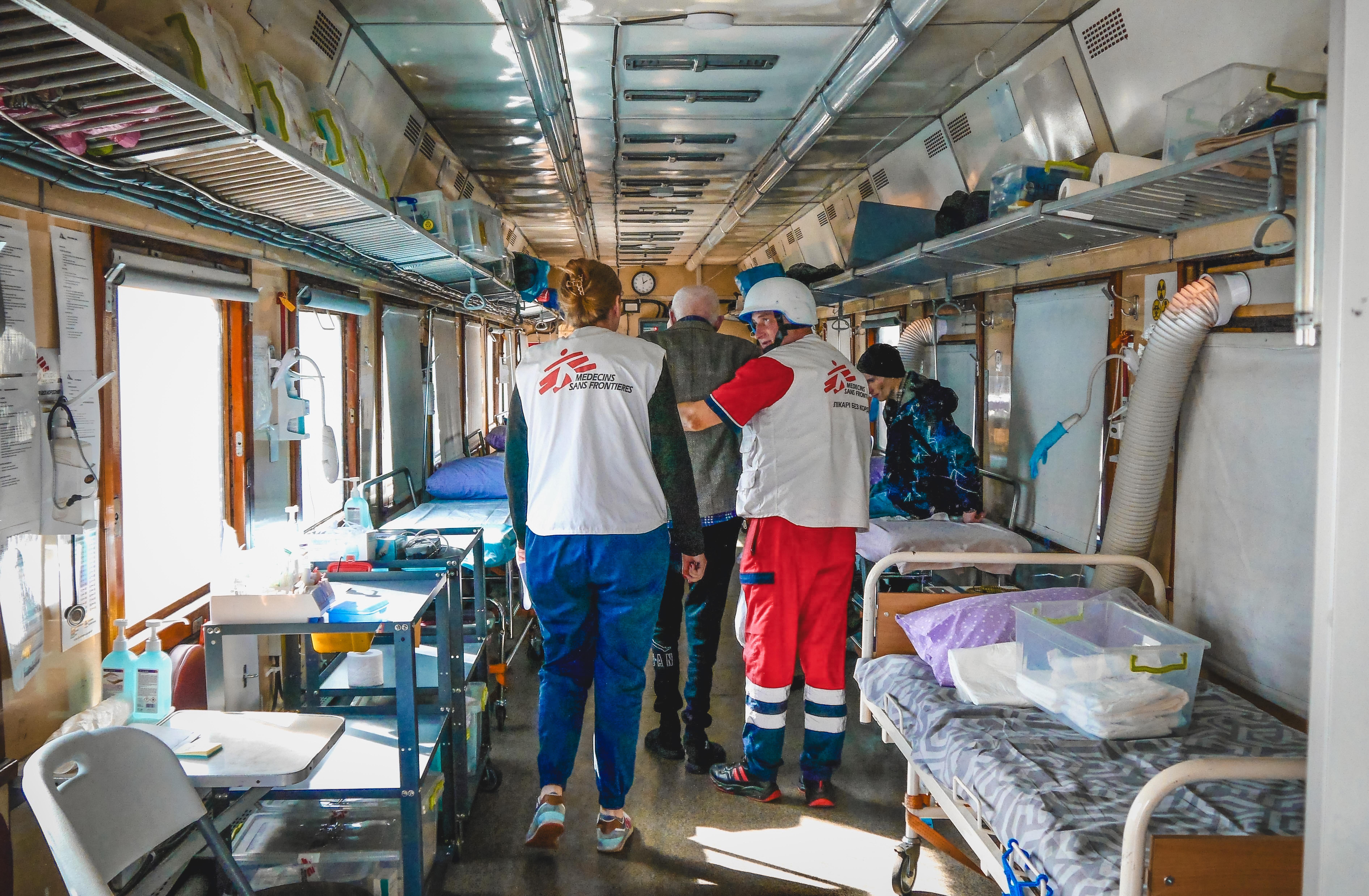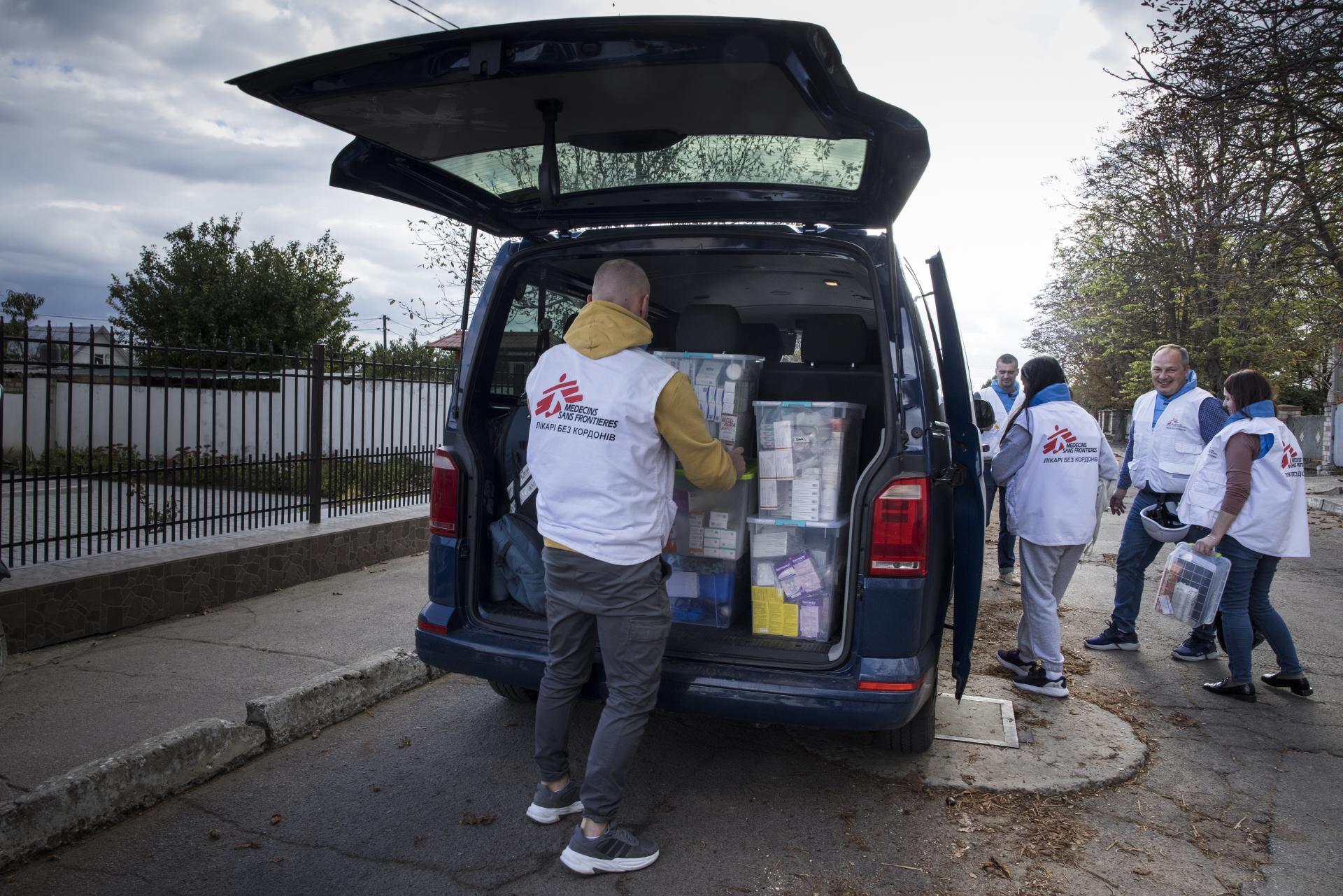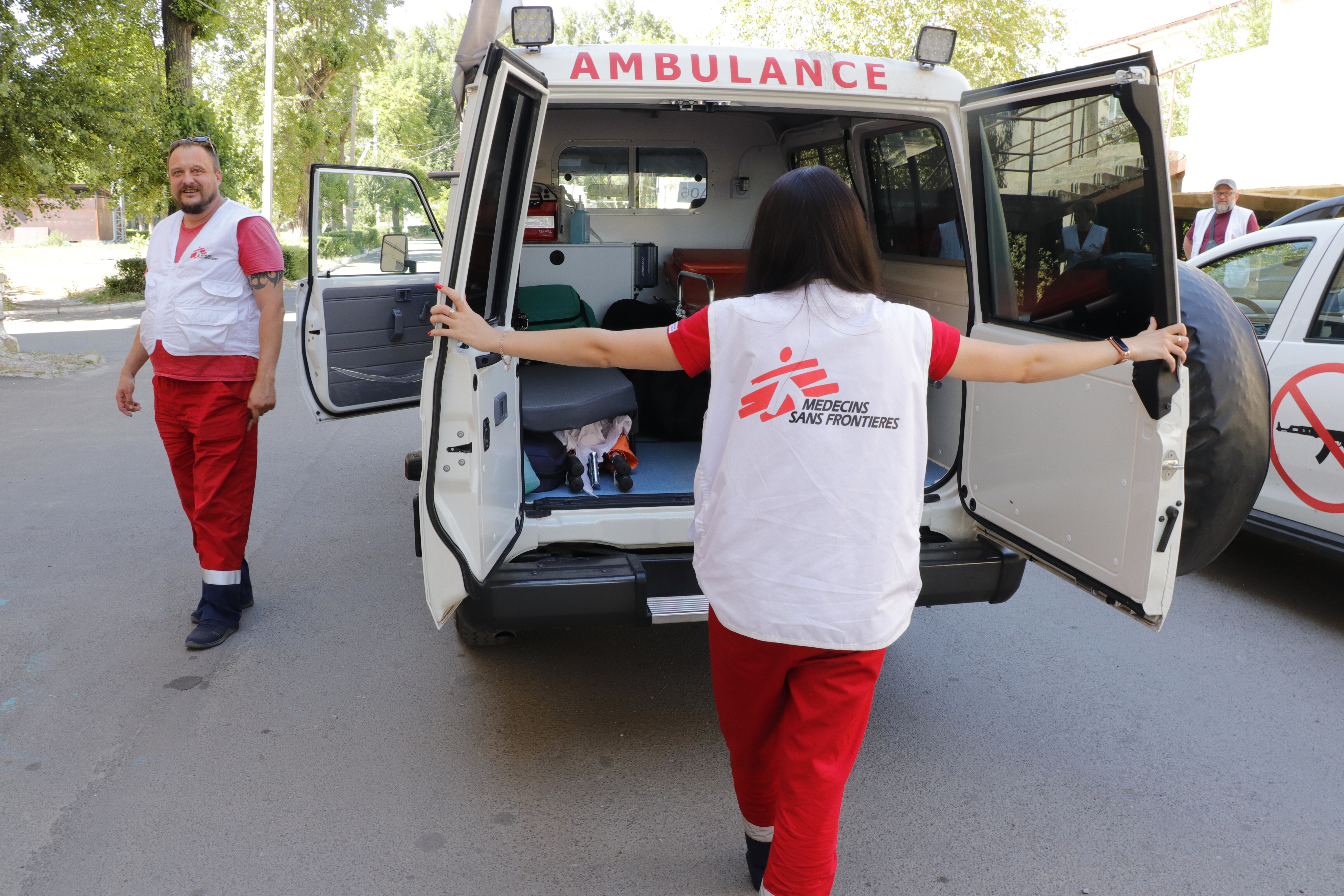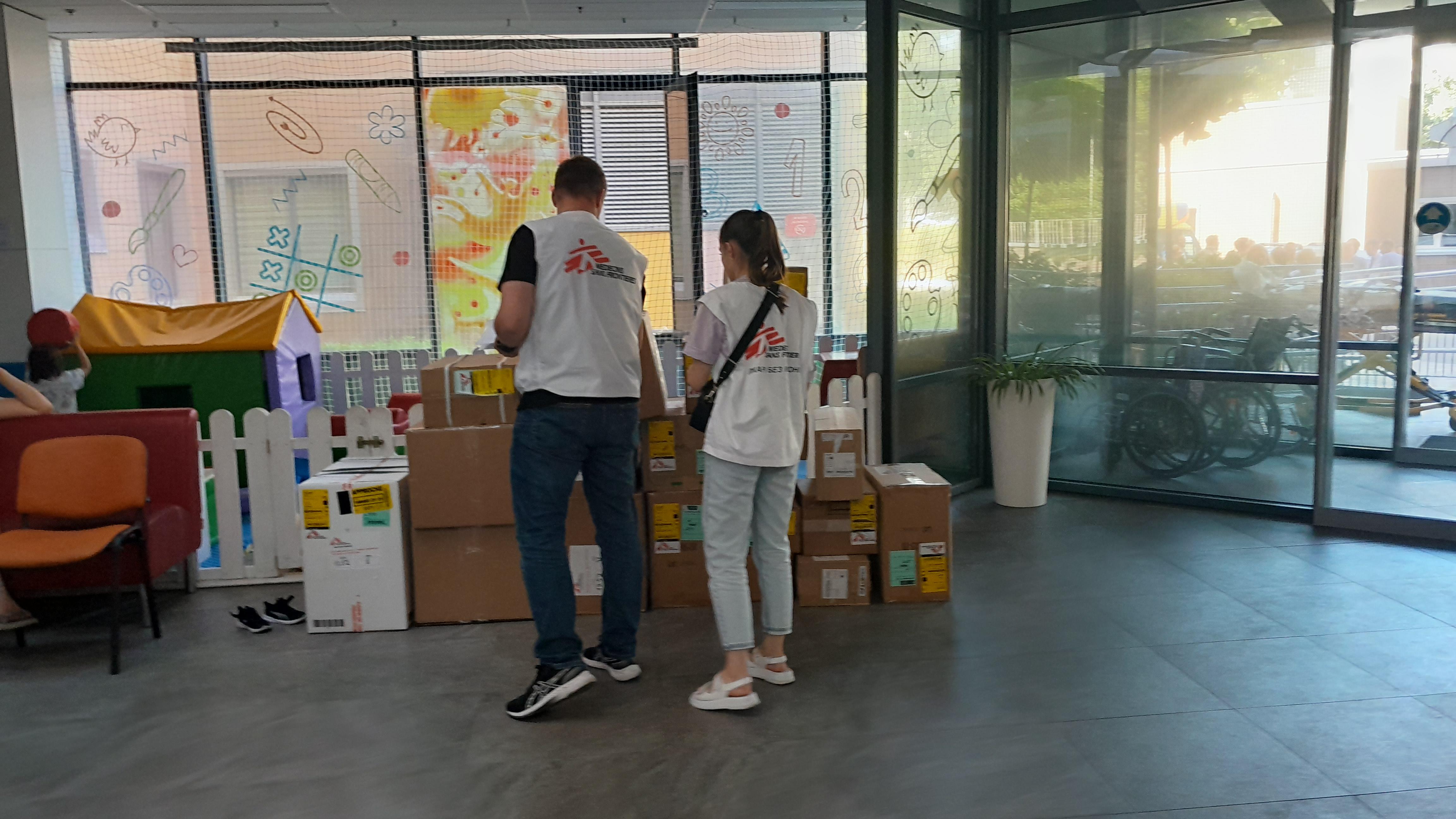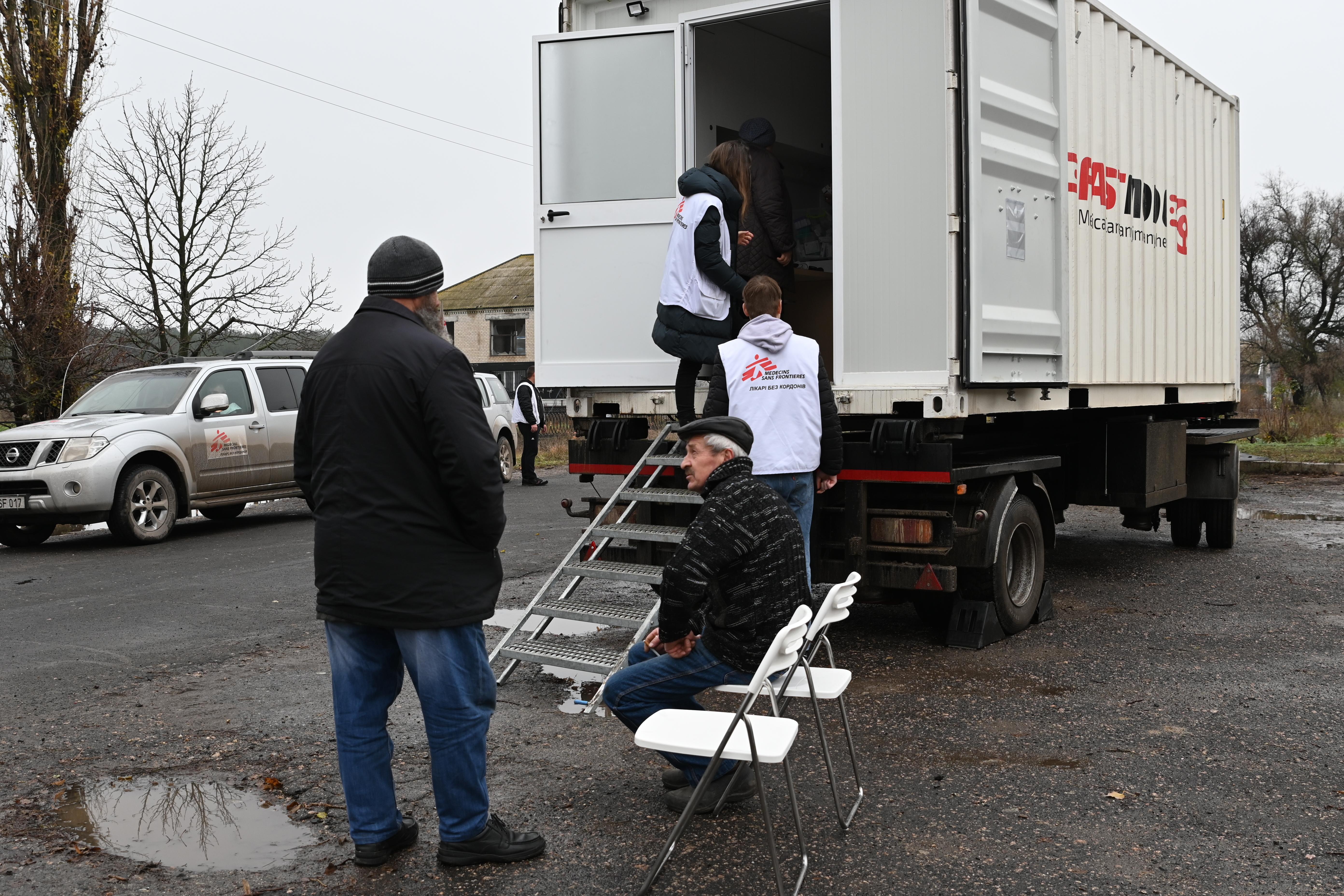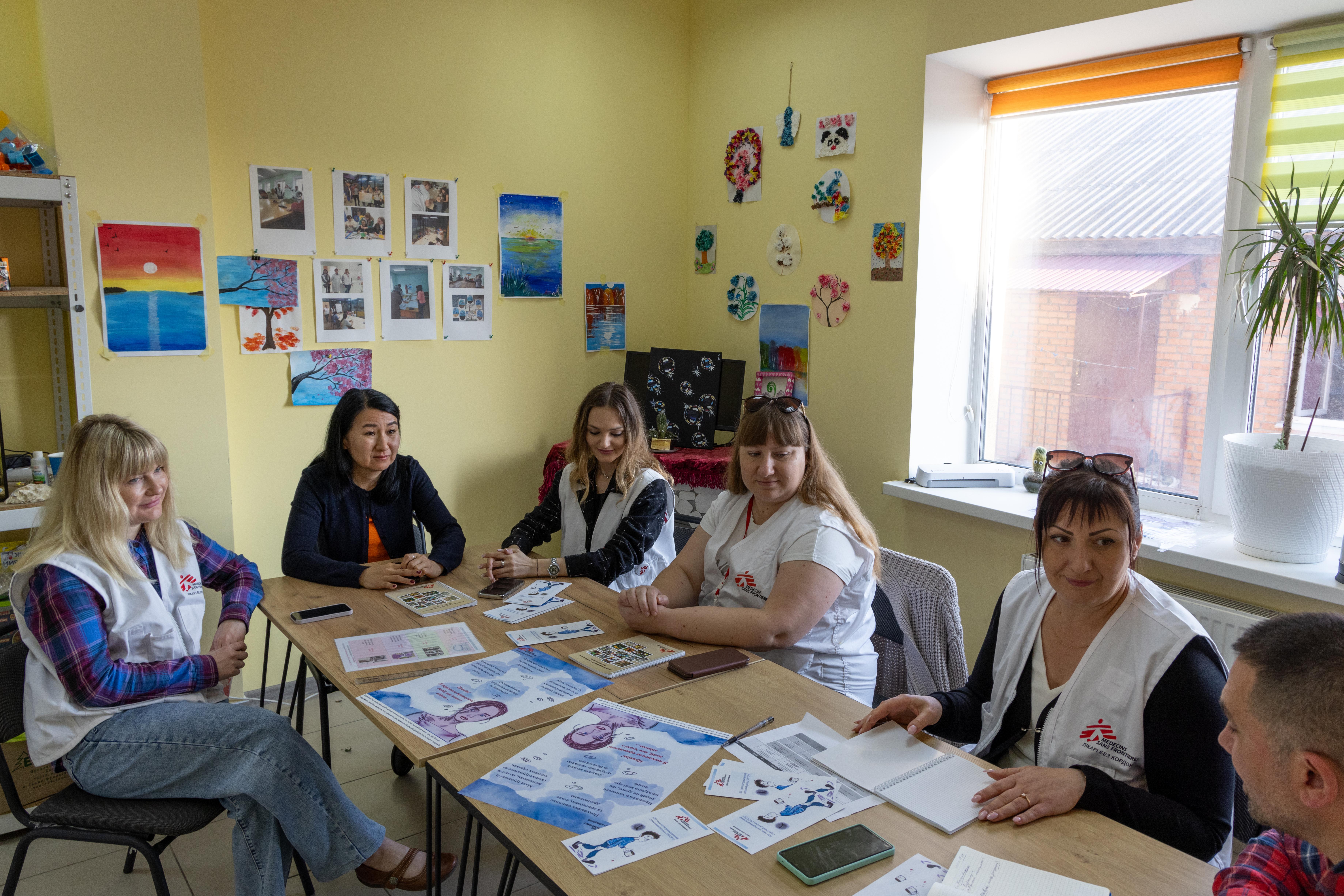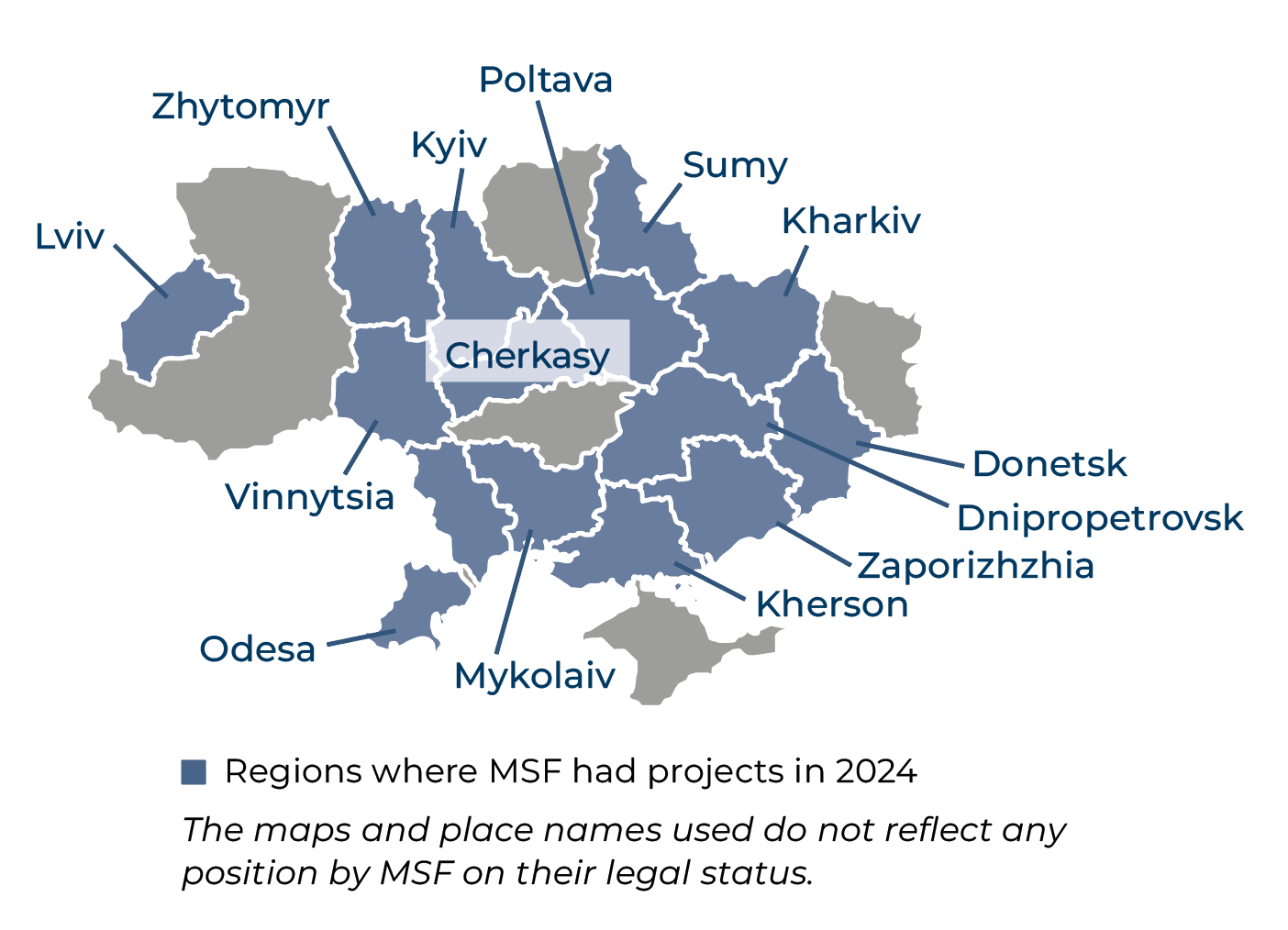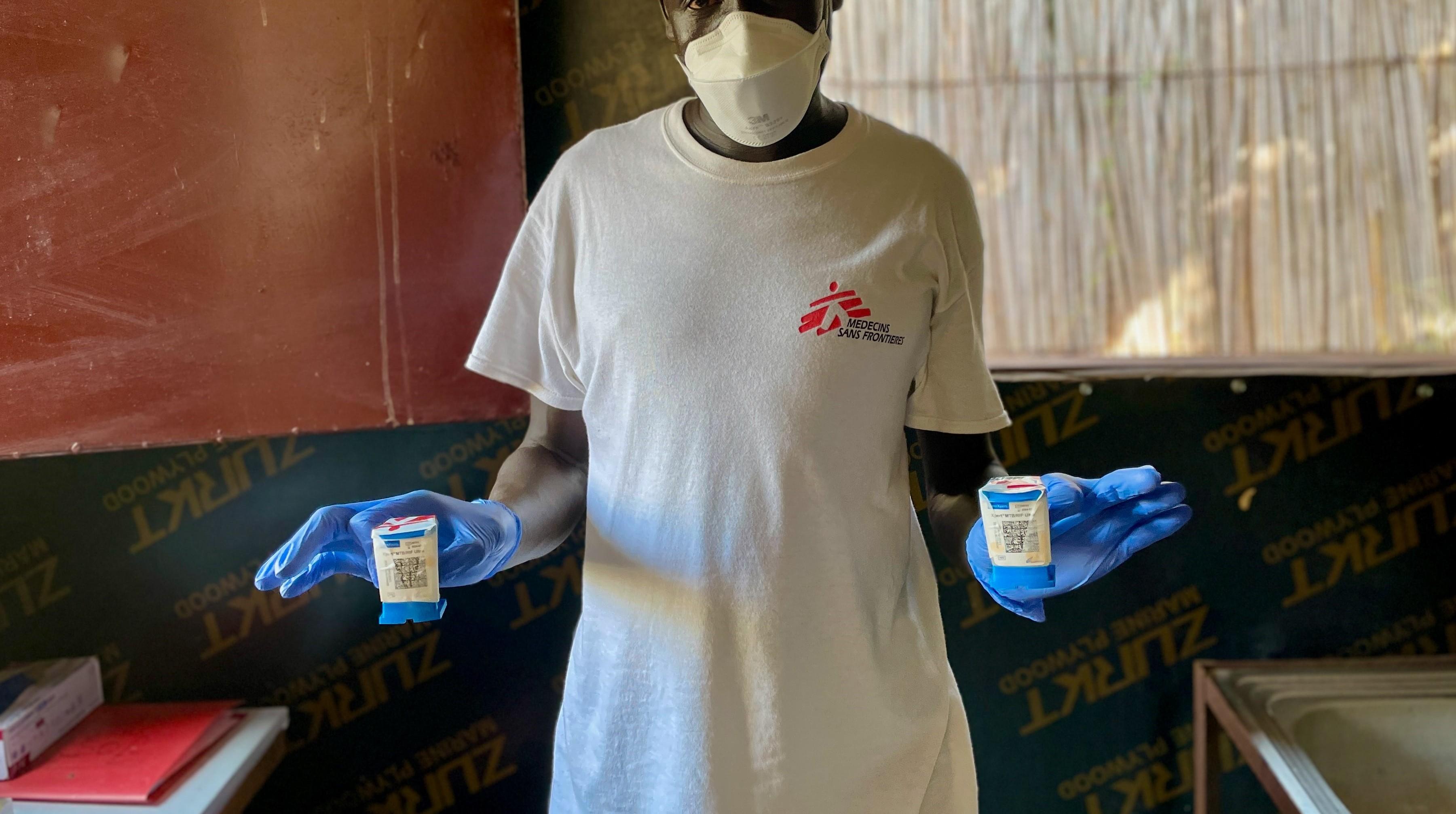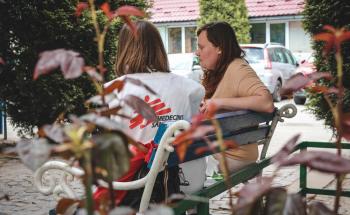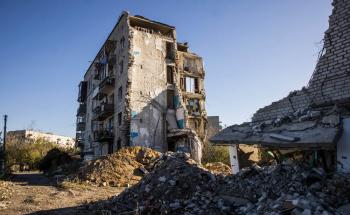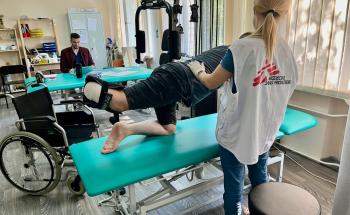Our mobile teams screened for tuberculosis and offered treatment for chronic diseases, such as hypertension, mainly to elderly and vulnerable patients, many of whom had resorted to living in basements or shelters to escape the shelling. Our ambulances frequently responded in the aftermath of airstrikes, referring wounded patients to nearby hospitals.
In a shelter run by local organisations in Zernove, Kharkiv region, we offered psychological care to people who had moved from Russia and Russian-occupied regions of Ukraine. In Pavlohrad, our teams provided mental health and basic healthcare for people fleeing the encroaching fighting in Pokrovsk and Kurakhove, Donetsk region. However, in April, MSF’s office in Pokrovsk was destroyed by a missile. Five people were injured in the attack, including an MSF staff member.
We also increased our mental health activities in 2024. We focused on treating post-traumatic stress disorder at our dedicated centre in Vinnytsia, and established a professional and community network to deliver trauma care for displaced people. We also expanded our support to reach people who have endured prolonged exposure to traumatic experiences, helping them manage their symptoms.
In Cherkasy and Odesa, MSF’s rehabilitation services comprised physiotherapy, mental health care, and nursing support for people who have recently had trauma surgery, including amputations.
We continued to send professionals and medical supplies to hospitals near the frontline to provide training and resources for mass-casualty influxes.

